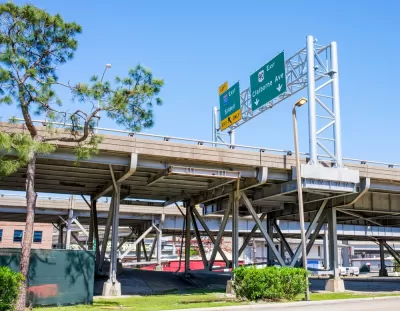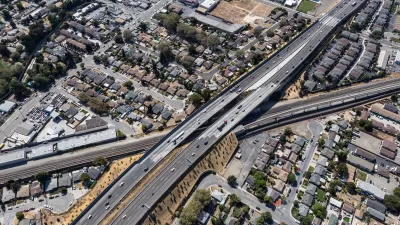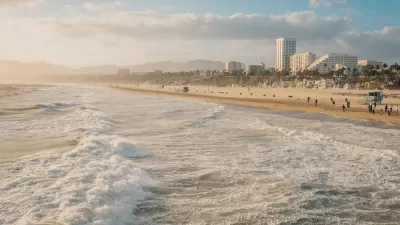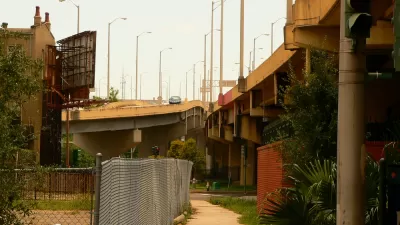Applications to the program reveal a pattern of state agencies requesting funds for projects that perpetuate car-centric development with only nominal equity components.

A new federal program aimed at ‘Reconnecting Communities’ divided and displaced by freeway construction could backfire, a coalition of community advocates warns. As Kea Wilson explains in Streetsblog, the group is concerned that the expansion of the range of projects that could be funded by Reconnecting Communities could dilute the program’s goals and perpetuate auto-centric development rather than mitigating and reversing the damage caused by freeways and urban renewal projects.
According to an open letter from the coalition to Transportation Secretary Pete Buttigieg, “The Reconnecting Communities program has the power to remedy the injustices of our previous infrastructure investments and recalibrate our transportation priorities so that they support underserved communities, but it is too small to spend any of its funding on projects that might come at their expense.”
Wilson describes several projects that would even expand highways using Reconnecting Communities funds, quoting Ben Crowther, advocacy manager for America Walks, who commented that the number of applications that perpetuate highway-building point to “a pattern of behavior” that uses “equity-washing” to maintain the status quo. Crowther says the small scale of the program so far means USDOT must act selectively to fund projects that are “truly reparative.”
FULL STORY: Advocates Warn ‘Reconnecting Communities’ Program Could Actually Expand Highways

Study: Maui’s Plan to Convert Vacation Rentals to Long-Term Housing Could Cause Nearly $1 Billion Economic Loss
The plan would reduce visitor accommodation by 25,% resulting in 1,900 jobs lost.

North Texas Transit Leaders Tout Benefits of TOD for Growing Region
At a summit focused on transit-oriented development, policymakers discussed how North Texas’ expanded light rail system can serve as a tool for economic growth.

Why Should We Subsidize Public Transportation?
Many public transit agencies face financial stress due to rising costs, declining fare revenue, and declining subsidies. Transit advocates must provide a strong business case for increasing public transit funding.

How to Make US Trains Faster
Changes to boarding platforms and a switch to electric trains could improve U.S. passenger rail service without the added cost of high-speed rail.

Columbia’s Revitalized ‘Loop’ Is a Hub for Local Entrepreneurs
A focus on small businesses is helping a commercial corridor in Columbia, Missouri thrive.

Invasive Insect Threatens Minnesota’s Ash Forests
The Emerald Ash Borer is a rapidly spreading invasive pest threatening Minnesota’s ash trees, and homeowners are encouraged to plant diverse replacement species, avoid moving ash firewood, and monitor for signs of infestation.
Urban Design for Planners 1: Software Tools
This six-course series explores essential urban design concepts using open source software and equips planners with the tools they need to participate fully in the urban design process.
Planning for Universal Design
Learn the tools for implementing Universal Design in planning regulations.
City of Santa Clarita
Ascent Environmental
Institute for Housing and Urban Development Studies (IHS)
City of Grandview
Harvard GSD Executive Education
Toledo-Lucas County Plan Commissions
Salt Lake City
NYU Wagner Graduate School of Public Service





























